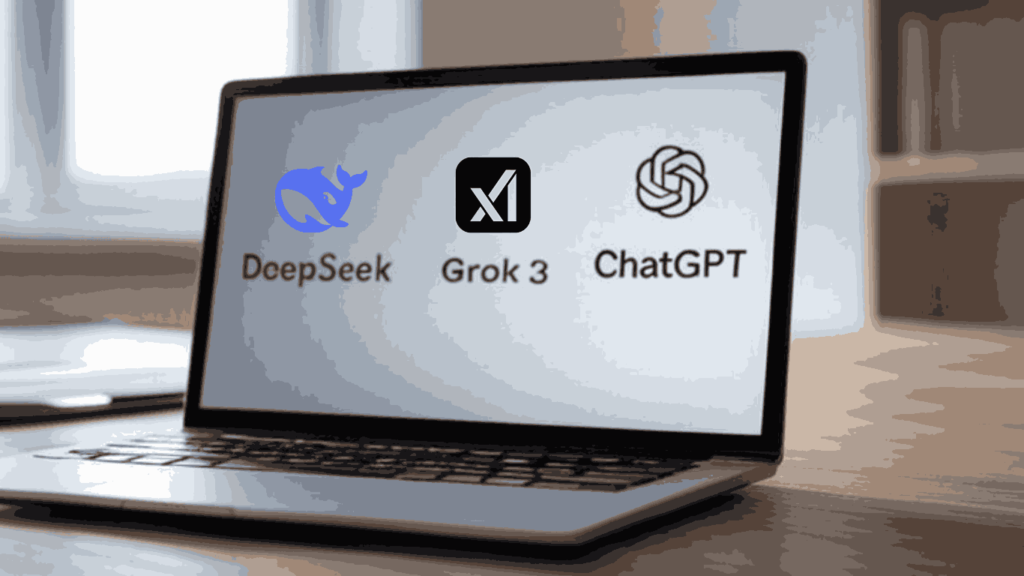Protecting your personal data using DeepSeek isn’t easy because its data servers are based in China. As it is under the Chinese government, they have to provide users’ data if the authorities request it. So, how can you protect your data? Well, I have some ways for you to protect your data. You’re about to learn how you can protect your data, what type of data DeepSeek collects, and what to do if you accidentally share private data. Now, let’s get onto the topic.
How Can You Protect Your Data When Using DeepSeek
The following are some of the ways to protect your data. Make sure that you’re executing any of them to protect your data.
Use a VPN
Using a VPN is the first move if you’re using a web or mobile app. It makes it harder for DeepSeek to know your IP address and where your internet traffic is coming from. Still, it can know what you are typing, but can’t detect that the data is coming from you.
Run Model Locally
You can download and run the DeepSeek on your local PC. It can be used on local runners like Ollama and LLaMA.cpp, LM Studio, Hugging Face Transformers. Once it’s installed, you can use it without internet, which means a login is required in this case. Running locally, you need to have robust hardware. If you have a device with 8-16 GB of RAM is sufficient for running 1.5B parameters, but for large models (like NVIDIA RTX 4090 with 24 GB VRAM) and 40GB of storage is required to be free. Which is costly for normal users.
Running the model locally keeps all data local and avoids data transmission to China servers, reducing the risk of remote profiling, government access, or data breaches.
Use the Third-Party Platforms
Use third parties like Perplexity, Groq, and Nvidia NIM, which allow you to use the DeepSeek without worrying about privacy, because these data centers are situated in the US. But these third-party platforms have a certain daily or monthly limit on messages.
Use a Temporary Email Address
Using services like Temp Mail can reduce profiling or tracking because it hides your IP address, device info, and keystroke patterns. These random emails are short in span (e.g., 10 minutes to 48 hours, depending on platforms) and not linked to your real identity or primary email. To put an extra layer of security on your privacy, you can combine a VPN and avoid giving sensitive information.
Delete All Chats
Deleting chats in DeepSeek stops the keystroke patterns or profiling. To delete the chats in DeepSeek, first log in to the account and go to “My Profile,” and then find the “Delete all chats” option. Although DeepSeek’s privacy policy mentions data deletion rights, it lacks transparency about how it uses deleted data.
Avoid Providing Sensitive Data
Avoid providing sensitive data like names, exact locations, dates, or specific information that is directly tied to you. Instead, use a random name and location to get the generalized result. It helps to reduce the risk of immediate profiling by sharing unidentifiable data.
What Type of Data DeepSeek Collects
DeepSeek collects a wide range of data about users that could be personal information, user input, and technical information. Below is a list of types of data DeepSeek collects:
User Input (your questions)
DeepSeek collects user inputs like most LLM models do. User Inputs like questions, prompts, personal info, work-related content, or anything else you type in. There is a good chance of logging or storing data temporarily if you’re using DeepSeek’s web version.
Device and Technical Info
The app version sends sensitive data like device model info, IP address, usage info, or even what you’re typing and how. Thanks to Apple, there is ATS (App Transport Security) for IOS users that disables sending data to DeepSeek.
Third Party Sharing
Cookies are used to track user behavior, measure service usage, and enhance security. It trains with collected data and also shares it with Chinese tech giants like Baidu and ByteDance. Since there is a big concern about DeepSeek data sharing activities with country partners. Your conversion is being commercial purposes beyond just improving its model.
What to Do If You Accidentally Share Private Data
If you accidentally share private or sensitive data (like personal details, passwords, or confidential information) in DeepSeek’s web or app version. Follow these steps to minimize the risks.
Stop Sharing More Data
Stop sharing or entering any additional sensitive information into DeepSeek’s chat or app. Don’t resend or retype the private data, as this could create more records of it.
Delete Your Chat History
As I already told you above, you can follow that. Deleting your chat history removes the sensitive data from DeepSeek’s user-facing records, though it may not erase data, already been processed or stored for analytics. Do it quickly, as delays might allow the data to be used for training or analytics before deletion.
Contact DeepSeek Support
Visit the DeepSeek official website, or you can just visit chat.deepseek.com. Find Contact Us and click Complaint/Suggestion. Submit the request and explain that you accidentally shared sensitive data, and ask for it to be deleted from their servers. Provide details like the time of the incident and the type of data shared (without repeating the sensitive info).
If their team does not respond to it, or may not confirm deletion. Do these steps further.
Monitor for Data Breaches
Regularly review your email, bank account, or other accounts for unusual activity. Use Services like Have I Been Pwned (haveibeenpwned.com) can alert you if your email or data appears in a breach.
Reporting to the Local Authority
The last option left is if it gets serious, like identity theft, financial loss, or other harm. Report it to your local data protection authority.
Conclusion
You can protect your data by using a VPN, running locally, and a temporary email. If you accidentally share private or sensitive data, like location, address, or anything tied to you. Stop sharing more data, visit their official website, and contact them if things get serious, then complain to local authorities.
If you’re seriously wanting to use free stuff like DeepSeek, prefer the alternative, or use a VPN, or stop sharing personal details.

I’m Ryker Alden, a writer, and contributor at DeepSeek Insider, where I craft queries, troubleshoot problems and create accessible tutorials. With a passion for artificial intelligence, machine learning, and large language models (LLMs), I focus on breaking down complex AI concepts into clear, simple language to engage and educate a broad audience.

